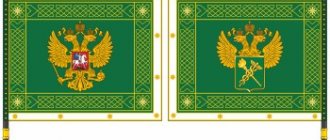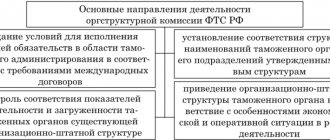What is the average salary for a customs specialist in 2022? This question worries the imagination of both young people who want to make a choice in favor of a worthy and highly paid profession, and the Russian population working in excellent fields.
In trying to find the answer to it, you don’t need to limit yourself only to numbers. It is advisable to evaluate each vacancy, together with information about the amount of salary, in terms of the implementation of work related to duty.
You need to get acquainted with all the problems and obstacles, find out what is desirable for a job in customs, whether there are prospects in this area and about the likely limitations, due to which you will have to direct your gaze to a completely different specialization.
Details
Employment for other specialties
The level of wages in customs is not always at the same level, but it is important to keep in mind that the number of individual specializations and positions that applicants could occupy are freely available not only if they undergo special training.
Employees can be hired if they have a higher education and have an excellent specialization - there are plenty of vacancies for them. Most likely, it will be necessary to take retraining courses. Their duration is generally short and depends on the vacancy. After approximately three months of training, the specialist has a chance of employment in customs.
Differences in titles and ranks received
Regarding the issue of remuneration for customs specialists, one should not lose sight of the fact that such a service contains a sufficient number of different ranks, specializations and titles. Let's highlight some of them:
— Inspector 1-3 ranks;
— Advisor 1-3 ranks;
— State Councilor 1-3 ranks.
They can all be further divided into first and second. The assignment of a new rank will be carried out only upon reaching a certain length of service and subject to occupying a position in the new rank.
During initial employment, you need to know that the hiring is for the position of warrant officer. The exception is that the future specialist had similar work experience and rank in government agencies.
All available positions are later united into three huge groups and make up junior, middle and senior staff. The size of the salary will directly depend on the position occupied.
Additional payments to the main rate
To calculate the finances that an employee can count on, his salary is taken into account, based on tariff standards approved for a similar department. In addition to the existing salary, allowances and payments are added up, adjustments to the transferred amount are based on the position held and the title of the specialist. The size of the premium may also vary in different regions.
Service employees can receive additional transfers for the following:
— special conditions under which the employee undergoes customs service;
— carrying out official duties when working with classified information;
— high-quality implementation of assigned official duties;
- rank;
— presence of academic titles;
— presence of special marks and achievements in work;
— serving in areas that are classified as remote or difficult to reach. In addition to all the above transfers, the specialist will be able to receive food rations.
Salaries in other countries
Foreign countries highly value the work involved in ensuring economic security, setting high salaries for border control officers. Japanese customs officers receive the largest remuneration - 506 thousand rubles. per month.
IN THE USA
At the initial stage of his career, an American inspector is forced to settle for an annual income of $35,000. Passing the tests is the key to successful career advancement, and after 3-4 years, a border control officer in the United States can rise to a management position with a salary of $7.5-8 thousand per month.
In Germany
A border control representative with no experience earns about 900-1000 euros monthly. To increase their own salary, a German civil servant will have to pass a qualifying exam, which increases their grade. Upon receiving rank A9, the inspector is assigned a salary of 3,200 euros; rank A13 allows him to count on a monthly income of 5,000 euros.
In Ukraine
The average salary of a customs officer varies between 13-15 thousand hryvnia, which is equivalent to 25-30 thousand rubles. Customs structures in Ukraine have a high degree of corruption, so the income of border control representatives may exceed the above figure. [flat_ab id=”4"]
In the Republic of Belarus
The head of the transport and forwarding division receives the maximum remuneration for work - 1000 Belarusian rubles. rub. A document flow specialist and declarant is assigned a salary of 800 BYN. rub.
| Job title | Salary amount by city (white rubles/month) | ||
| Minsk | Svislach | Dzherdzhinsk | Grodno |
| Declarant (customs) | 800 and above | ||
| Customs declaration specialist | 900 and above | 900 and above | |
| Head of Customs Clearance Department | 1500 | ||
| Head of transport and forwarding department | 1000 | ||
| Transportation Organization Specialist | 600 and above | ||
| Document Management Specialist | 800 | 900 and above | |
| Customs clearance specialist | 750-800 | 700 | 800-1500 |
The customs officer involved in organizing transportation is content with 600 Belarusian rubles. rub. per month.
Advantages and disadvantages of the profession
When assessing employment prospects as a border control representative, an applicant should consider the potential pros and cons of working in the FCS system. The first include:
- prestige of the profession;
- availability of benefits and additional incentives (allowances, bonuses);
- a wide range of social guarantees (paid leave, medical care, etc.).
The list of disadvantages of the profession includes:
- performance of official duties in conditions that are not comfortable;
- work involves stressful situations;
- The amount of remuneration for work does not always correspond to the degree of responsibility assigned.
A FCS employee must be an expert in several specialized areas of knowledge: economics, law, public administration, psychology, logistics.
Unified State Examination: minimum passing scores
According to data published on the website of the Russian Customs Academy, when admitting applicants for the 2021/2022 academic year to the specialty “Customs Affairs”, the following minimum passing scores for the Unified State Exam were in effect:
- “Russian language” - 43 (budget places) and 40 (places under contracts for the provision of paid educational services - 45 (both for budget places and places under contracts for the provision of paid educational services - 30;
- "Informatics" - 44 and 41, respectively.
Study this information in detail on the websites of the university you have chosen for admission.
What can a customs specialist do?
The question of what you can do after graduation is always relevant.
The customs sphere is represented by two profiles: law enforcement (control the movement of goods across the state border, monitor the legality of all customs activities and operations) and civil (declarants, inspectors, experts). Representatives of law enforcement are often military people; law school graduates who are well versed in modern legislation also go to work there. Graduates of the “Customs Affairs” faculties, as a rule, occupy civil positions.
If we talk about places where customs officers work, these include airports, train stations, ports and border posts.
A customs specialist can apply his knowledge and skills in other areas. It will be in demand wherever legal and economic knowledge is needed. Commercial structures focused on international trade willingly hire former customs officers; they provide invaluable assistance in the correct registration of goods when transporting them across the border, help evaluate and reduce transportation-related costs, etc.
Career
Counting on a lightning-fast career in any field is always self-deception. Rarely does anyone succeed in occupying a leadership position at a young age; this is most often due to an amazing combination of circumstances and luck. Therefore, be prepared that in the customs sector you will have to work for a long time as a simple inspector or ordinary employee.
At the same time, customs authorities have a complex structure, which includes the Federal Customs Service, regional customs administration, customs and posts, and customs clearance departments. There is room here to grow and develop.
Career growth largely depends on the employee’s literacy and competence. Professionals and those who constantly strive to improve their skills are valued always and everywhere. Personal connections can have a significant impact on career growth, so it is useful to exchange contacts and make acquaintances in the field where you work.
Favorable conditions for career growth arise during periodic reorganization of customs authorities, mergers or the formation of new departments and departments. Any employee has the opportunity to take part in a competitive selection for another position; the main thing is to be purposeful and not be afraid to try your hand.
As in any other government agencies, in the customs sector, transfer to other cities and regions is available for employees, with or without promotion.
If you have graduated from a customs university or have already acquired some professional experience in this field, but feel that you are not cut out for public service, where it is important to respect the chain of command and follow orders, try yourself in business. It is possible that you will achieve great success there.
Where can you become a customs officer?
Despite the fact that anyone who, having any higher education, has acquired the necessary skills and knowledge in special courses, can get a job in customs, those who have graduated from a customs university still have a greater chance of getting a job.
The Russian Customs Academy is rightfully considered the best educational institution training future customs officers in our country. However, it is possible to obtain a high professional qualification of a customs officer, capable of ensuring rapid career growth in the future, by mastering the “Customs Affairs” curriculum at universities such as the Moscow University of Finance and Law, the Russian Academy of National Economy and Public Administration under the President of the Russian Federation, which has branches in various cities of the country, branches of the university named after. G.V. Plekhanov, Technological University, RUDN University, etc. Customs affairs is also taught in leading regional universities, for example, at the Saratov Research State University named after. N.G. Chernyshevsky.
Who is a customs officer
Customs officer is a profession with a rich history. The emergence of customs was due to economic reasons - the formation of the first centralized states and the beginning of the development of trade between them. In Ancient Rus', where customs appeared around the 9th century, customs officers collected “myto” (trade tax, duty) from caravans with goods passing across the border. The so-called “mytniks” carried out the tasks that customs officers still face today - ensuring the economic security of the country and supporting the economic development of the state by replenishing the treasury.
Customs officer. Description of the profession
With the development of customs business, the profession of a customs officer acquired its own specific features in comparison with other professions of the public service. Today, a customs officer is assigned specific duties, for the conscientious fulfillment of which he bears serious responsibility. We list the responsibilities of an ordinary customs employee:
- inspect cargo transported across the state border;
- check cargo for compliance with the documents attached to it;
- evaluate the correctness of the preparation and authenticity of all documents accompanying the goods;
- calculate the amount of customs payments, excise taxes, duties based on the characteristics of the cargo;
- draw up all necessary permits for goods, enter information about them into the relevant registers;
- identify and suppress the illegal transportation of goods through their confiscation, account for and dispose of all confiscated products;
- carry out inspections of citizens and their luggage at the station, at the airport, at the checkpoint.
After completing training, the career of a customs officer begins with the position of an ordinary inspector, checkpoint officer, or passport control worker. The responsibilities of senior inspectors and commanding officers primarily include recruiting employees, organizing and conducting activities to improve their qualifications, ensuring the uninterrupted and well-coordinated operation of all customs posts, monitoring and coordinating their activities.
Subspecialty specialists, for example, dog handlers, are often involved in work in the customs field when there is a need to find drugs or other harmful substances and items prohibited for import into the country.
Despite all the complexity and danger of the customs officer’s profession, it is quite suitable for girls, provided that they are able to withstand the entire burden of responsibility and come to terms with irregular working hours. About 35% of the total number of Russian customs employees today are women.
What personal qualities should a customs officer have?
In order not to be crushed by the burden of responsibility or not to get bogged down in the routine of the profession, before choosing a customs university, take a closer look at yourself and decide whether you have the personal qualities necessary for such work.
A high degree of patriotism, honesty and integrity will help conscientious service at customs. In addition, a successful career in the customs field will be facilitated by:
- communication skills and diplomacy;
- attentiveness and intuition;
- observation and ability to summarize and systematize a large amount of information;
- accuracy in paperwork;
- performance and resistance to stress.
Knowledge of psychology helps experienced customs officers detect a person or vehicle with contraband. Having intuitively sensed something was wrong, they can, using some practical techniques, identify the violation.
The professional knowledge and skills of a customs officer include impeccable knowledge of the norms of modern legislation, legal and legal subtleties and nuances, the basics of office work in the customs sphere and competent business speech. In addition, working at customs cannot be done without economic knowledge about the peculiarities of trade and commodity circulation.
Faculties, directions and specialties
Today, in order to become a customs officer, you need to master the specialty “Customs Affairs”. This specialty is included in the list of specialties of the law faculty of many universities.
As part of customs training, you can become a universal specialist, or you can undergo training in your chosen specialization. For example, the Russian Customs Academy offers its students specializations such as “Customs Management”, “Customs Payments”, “Organization of Customs Control”, “Customs Logistics”, “International Customs Cooperation”.









